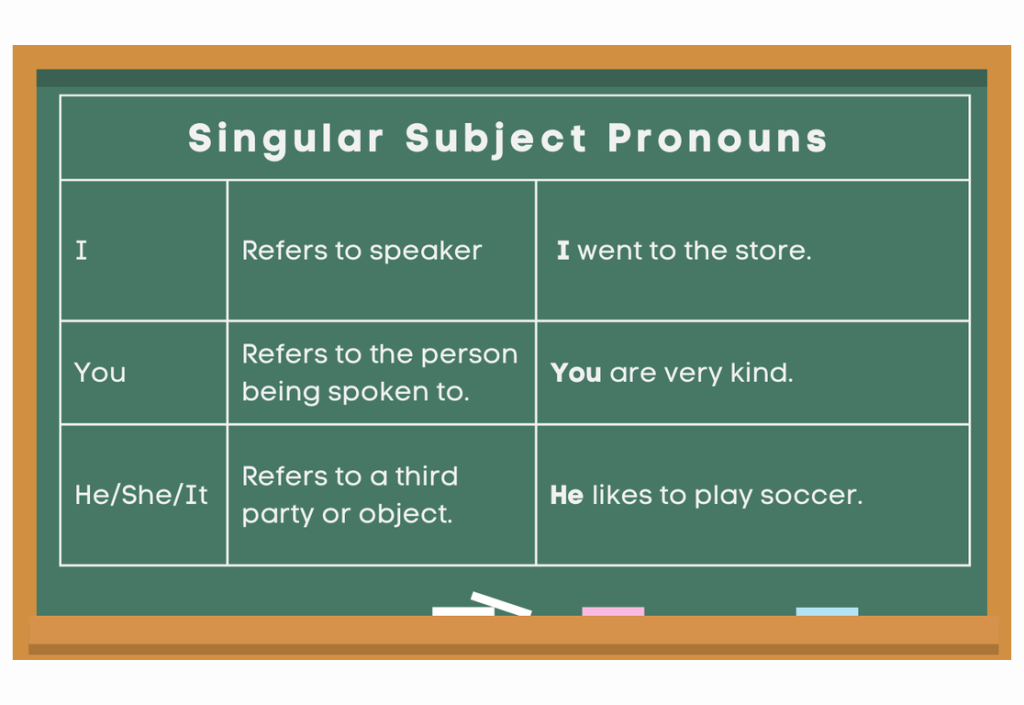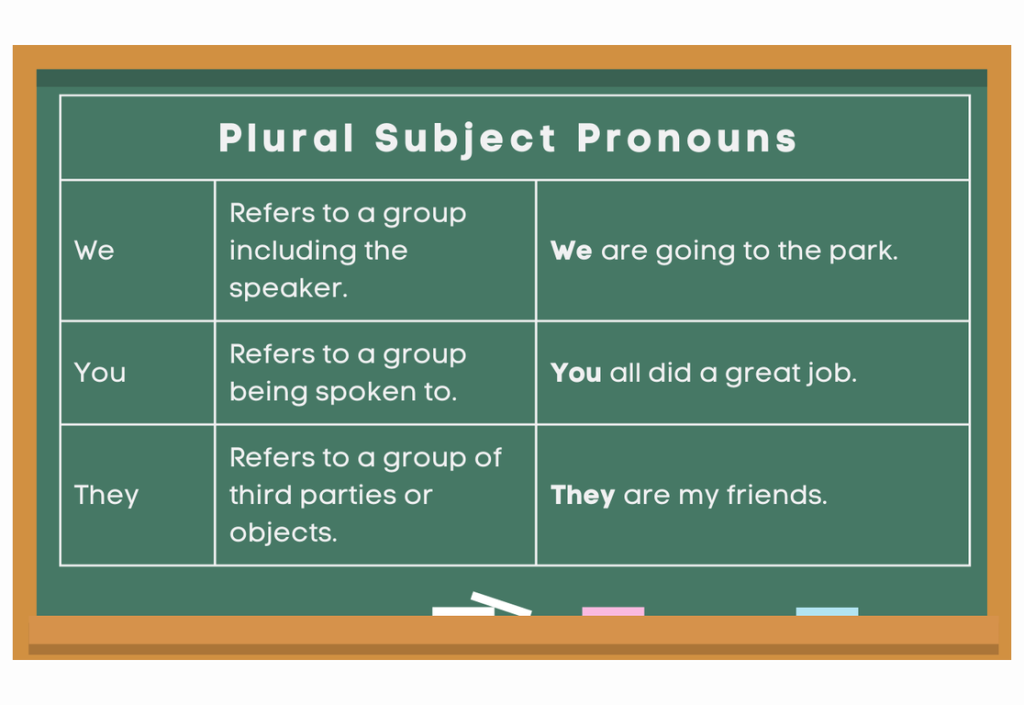Understanding Subject Pronouns – Definition, Types & Examples
Table of Contents
Introduction
Subject Pronouns
Subject pronouns play a crucial role in language and communication. Let’s delve into the world of subject pronouns and explore their significance in constructing meaningful sentences.
Analogy of Definition
What are Subject Pronouns?
Subject pronouns are pronouns that serve as the subject of a verb in a sentence. They are used to replace the noun that is performing the action, making sentences less repetitive and more concise. Common subject pronouns include “I,” “you,” “he,” “she,” “it,” “we,” and “they.”
Method
Using Subject Pronouns
Subject pronouns are crucial for sentence structure as they identify who or what is performing the action. For instance, in the sentence “She runs every morning,” “she” is the subject pronoun that tells us who is running. This is different from object pronouns, which receive the action, such as “me,” “him,” “her,” “us,” and “them.”
Types of Subject Pronouns
Singular Subject Pronouns

Plural Subject Pronouns

Examples
Example 1: Instead of saying ‘Mary is reading’, you can use the subject pronoun ‘she’ to say ‘She is reading’.
Example 2: Instead of saying ‘We are going to the park’, you can use the subject pronoun ‘we’ to say ‘We are going to the park’.
Example 3: Instead of saying ‘The dog is barking’, you can use the subject pronoun ‘it’ to say ‘It is barking’.
Example 4: Instead of saying “Mary is singing,” you can use the subject pronoun “she” to say “She is singing.”
Example 5: Instead of saying “The children are playing,” you can use the subject pronoun “they” to say “They are playing.”
Example 6: Instead of saying “John and I are going to the store,” you can use the subject pronoun “we” to say “We are going to the store.”
Subject pronouns are essential in language as they replace the names of the subjects in sentences, making communication more efficient and natural. By using subject pronouns, we can avoid repetition and express ideas more concisely.
Quiz
Tips and Tricks
1. Using Subject Pronouns in Questions
Tip: When asking about the subject of a sentence, use subject pronouns to form questions. For example, ‘Who is coming?
2. Avoiding Repetition
Tip: Use subject pronouns to avoid repeating the names of subjects in consecutive sentences. For example, ‘John is happy. He is playing.’
3. Subject Pronouns in Commands
Tip: Subject pronouns are used in commands to address the person directly. For example, ‘You, come here.’
Real life application
Scenario: The Classroom Discussion
In a classroom setting, subject pronouns are frequently used to engage in discussions and express ideas. For example, ‘I think…’ or ‘We should…’.
Scenario: The Job Interview
During a job interview, subject pronouns are employed to communicate skills and experiences effectively. For instance, ‘I have experience in…’ or ‘We achieved…’.
Scenario: The Family Conversation
In family conversations, subject pronouns are utilized to share thoughts and emotions. For example, ‘I feel…’ or ‘We are planning…’.
FAQ's
Like? Share it with your friends






